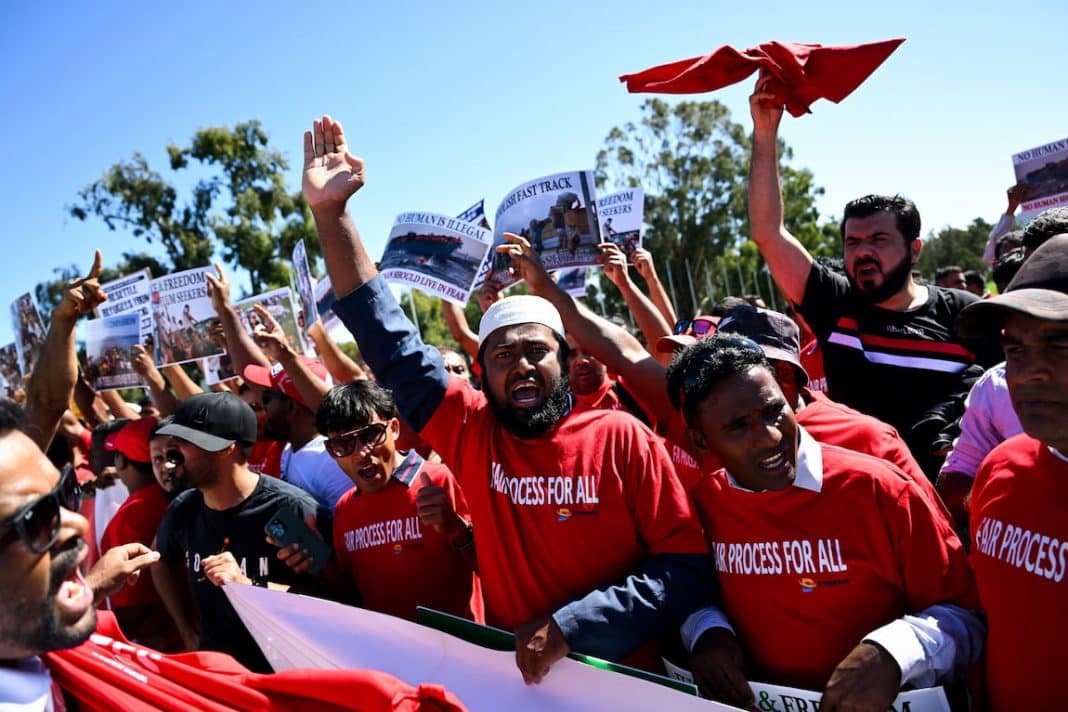Hundreds of protesters have called on the government to provide permanent visas to thousands of asylum seekers whose fates are still in limbo.
Demonstrators converged on Parliament House, coinciding with the start of the parliamentary sitting week, urging certainty for more than 12,000 refugees and asylum seekers.
While the federal government announced changes last month granting permanent visas for more than 19,000 refugees on temporary protection visas, advocates have warned the future for many more thousands was up in the air.
Among them included roughly 10,000 refugees whose permanent visa requests were rejected under previous fast-tracking processes.
Those at the rally also called for the more than 1000 refugees who have been transferred from Nauru and Papua New Guinea to be granted permanency, with many on bridging visas.
Ian Rintoul from the Refugee Action Coalition said there needed to be a fair process for refugees, which included permanent visas.
He said the changes to temporary protection visas were discriminatory due to it only applying to those who arrived in Australia before Operation Sovereign Borders began in February 2013.
“The 1000 refugees from Nauru and PNG are being seriously discriminated against. They arrived in Australia after July 13, 2013, and were arbitrarily selected, sometimes separated from families on the same boat, to be sent offshore,” he said.
“Meanwhile, the group not selected for offshore are now eligible for permanent visas. There’s no justice in that. It’s another group Labor is leaving behind.
“After 10 years, Labor needs to act to fix all the problems created by an unjust and inhuman refugee policy. There must be a fair process and permanent visas for all refugees.”
Among the speakers at the rally was Maria Kahie, a Somali refugee who came to Australia from Nauru.
“When I came to Australia I wanted to be a journalist or a social worker, but I was not allowed to study on my visa. If I was allowed to study, perhaps I could start a new life. But, they would not let me,” she said.
“Now nine years later, without a degree, without anything, the government says to me to start again in another country – without my husband, without my kids? My life is here.”
By Andrew Brown in Canberra


